第13章 CHAPTER II(5)
Tom, when he woke, for of course he woke - children always wake after they have slept exactly as long as is good for them - found himself swimming about in the stream, being about four inches, or - that I may be accurate - 3.87902 inches long and having round the parotid region of his fauces a set of external gills (I hope you understand all the big words) just like those of a sucking eft, which he mistook for a lace frill, till he pulled at them, found he hurt himself, and made up his mind that they were part of himself, and best left alone.
In fact, the fairies had turned him into a water-baby.
A water-baby? You never heard of a water-baby. Perhaps not. That is the very reason why this story was written. There are a great many things in the world which you never heard of; and a great many more which nobody ever heard of; and a great many things, too, which nobody will ever hear of, at least until the coming of the Cocqcigrues, when man shall be the measure of all things.
"But there are no such things as water-babies."
How do you know that? Have you been there to see? And if you had been there to see, and had seen none, that would not prove that there were none. If Mr. Garth does not find a fox in Eversley Wood - as folks sometimes fear he never will - that does not prove that there are no such things as foxes. And as is Eversley Wood to all the woods in England, so are the waters we know to all the waters in the world. And no one has a right to say that no water-babies exist, till they have seen no water-babies existing; which is quite a different thing, mind, from not seeing water-babies; and a thing which nobody ever did, or perhaps ever will do.
"But surely if there were water-babies, somebody would have caught one at least?"
Well. How do you know that somebody has not?
"But they would have put it into spirits, or into the ILLUSTRATED NEWS, or perhaps cut it into two halves, poor dear little thing, and sent one to Professor Owen, and one to Professor Huxley, to see what they would each say about it."
Ah, my dear little man! that does not follow at all, as you will see before the end of the story.
"But a water-baby is contrary to nature."
Well, but, my dear little man, you must learn to talk about such things, when you grow older, in a very different way from that.
You must not talk about "ain't" and "can't" when you speak of this great wonderful world round you, of which the wisest man knows only the very smallest corner, and is, as the great Sir Isaac Newton said, only a child picking up pebbles on the shore of a boundless ocean.
You must not say that this cannot be, or that that is contrary to nature. You do not know what Nature is, or what she can do; and nobody knows; not even Sir Roderick Murchison, or Professor Owen, or Professor Sedgwick, or Professor Huxley, or Mr. Darwin, or Professor Faraday, or Mr. Grove, or any other of the great men whom good boys are taught to respect. They are very wise men; and you must listen respectfully to all they say: but even if they should say, which I am sure they never would, "That cannot exist. That is contrary to nature," you must wait a little, and see; for perhaps even they may be wrong. It is only children who read Aunt Agitate's Arguments, or Cousin Cramchild's Conversations; or lads who go to popular lectures, and see a man pointing at a few big ugly pictures on the wall, or making nasty smells with bottles and squirts, for an hour or two, and calling that anatomy or chemistry - who talk about "cannot exist," and "contrary to nature." Wise men are afraid to say that there is anything contrary to nature, except what is contrary to mathematical truth; for two and two cannot make five, and two straight lines cannot join twice, and a part cannot be as great as the whole, and so on (at least, so it seems at present): but the wiser men are, the less they talk about "cannot." That is a very rash, dangerous word, that "cannot"; and if people use it too often, the Queen of all the Fairies, who makes the clouds thunder and the fleas bite, and takes just as much trouble about one as about the other, is apt to astonish them suddenly by showing them, that though they say she cannot, yet she can, and what is more, will, whether they approve or not.
And therefore it is, that there are dozens and hundreds of things in the world which we should certainly have said were contrary to nature, if we did not see them going on under our eyes all day long. If people had never seen little seeds grow into great plants and trees, of quite different shape from themselves, and these trees again produce fresh seeds, to grow into fresh trees, they would have said, "The thing cannot be; it is contrary to nature."
And they would have been quite as right in saying so, as in saying that most other things cannot be.